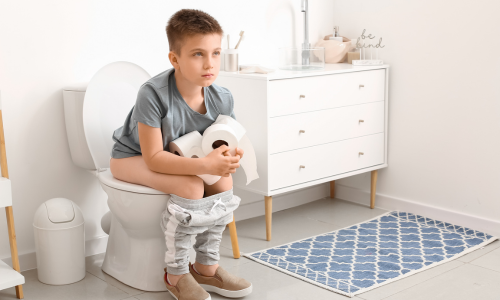
ANTIBIOTIC-ASSOCIATED DIARRHEA: CAUSES, TREATMENT, AND PREVENTION
When hearing "antibiotic-associated diarrhea," you might think of diarrhea accompanied by abdominal pain after taking antibiotics. This occurs because antibiotics kill a significant portion of natural bacteria in the gut, disrupting the balance of various bacterial species.
CAN ANTIBIOTICS CAUSE DIARRHEA?
Antibiotics treat bacterial infections by killing bacteria or preventing them from spreading and multiplying. However, like any other medication, antibiotics can cause side effects, including diarrhea, nausea, vomiting, abdominal pain, loss of appetite, bloating, and stomach discomfort.
Antibiotics can cause diarrhea by disrupting the delicate balance of healthy bacteria in your gut that aid digestion and overall health. This imbalance allows harmful bacteria, such as Clostridium difficile, to thrive, releasing toxins that cause diarrhea. In some cases, this can lead to infections and prolonged diarrhea even after completing the antibiotic course.
TREATING ANTIBIOTIC-ASSOCIATED DIARRHEA
While diarrhea often resolves after stopping antibiotics, there are ways to manage and alleviate symptoms:
-
Stay Hydrated:
To compensate for fluid loss, drink plenty of water or sugar-free fruit juices. Avoid beverages like coffee, tea, cola, alcohol, or anything caffeinated, as they can worsen dehydration. -
Avoid Dairy, Fatty, and Spicy Foods:
These can exacerbate symptoms. Return to your normal diet once symptoms subside. -
Use Probiotics:
Probiotics help restore the balance of healthy gut microorganisms. They are available as supplements in liquid, tablet, powder, or capsule forms, or in fermented foods like yogurt.The most researched probiotics for treating antibiotic-associated diarrhea are those containing Lactobacillus rhamnosus or Saccharomyces boulardii.
- Start taking probiotics on the same day as your antibiotics but at least two hours apart.
- Continue probiotics for a few weeks after completing the antibiotic course.
WHAT TO EAT WHEN EXPERIENCING ANTIBIOTIC-ASSOCIATED DIARRHEA
While high-fiber foods are generally recommended for good health, they may worsen diarrhea during an episode. Instead, opt for potassium-rich foods that can be beneficial. Here are some tips:
Foods to Eat:
- Follow a low-fiber diet, increase potassium intake, and stay hydrated.
- Water
- Fruits: Especially bananas.
- Grains: White rice, white bread, and pasta.
- Yogurt: A source of probiotics.
- Proteins: Poultry, lean meats, and seafood.
Foods to Avoid:
Some foods can worsen symptoms or interfere with antibiotic therapy:
- Caffeinated and alcoholic beverages.
- Dairy products (except yogurt).
- High-fat foods like fried items, baked goods, and chips.
- High-sugar foods and drinks like fruit juices, cakes, and cookies.
- Calcium supplements or grapefruit.
References:
Diarrhée due aux antibiotiques: Causes, traitement et prévention
